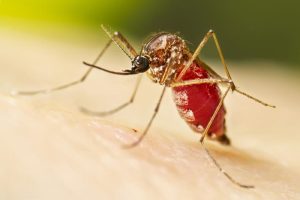NewsDesk @bactiman63
Dengue
The Taiwan CDC announced Tuesday the first local case of dengue fever in the country in 2023. The patient is a woman in her 40s living in Rende District, Tainan City.

She was diagnosed with type 1 dengue fever. At present, the case has been discharged from the hospital and returned home to recuperate, and the close contacts currently have no suspected symptoms.
The Centers for Disease Control and Prevention stated that because there was no history of going abroad within 14 days before the onset of the disease, it was determined to be a local case. The main activity place during the incubation period was near the home, and the source of infection remains to be further investigated.
In order to prevent the spread of the epidemic, Tainan City has established a district-level command center to conduct various prevention and control work such as breeding source inspection and removal, chemical control, public health education, etc. in the case’s home, surroundings, and activity areas. Expanded screening will be established in the community. Because the case traveled to Yilan, Hualien, and Kaohsiung during the contagious period, the relevant counties and cities will also implement prevention and control measures for the place of their activities.
According to statistics from the CDC, so far this year in China, there has been 1 local case of dengue fever and 45 imported cases. Most of the imported cases are in Southeast Asia.
Japanese encephalitis
In addition, a new confirmed case of Japanese encephalitis in Taiwan. The case is a man in his 50s from Ji’an Township, Hualien County. He is currently being hospitalized for treatment.
There are high-risk places such as rice fields and ditches near the case’s home, and there are many mosquitoes. The health unit has carried out relevant prevention and control work and strengthened health education for local people.
The Mosquito: A Human History of Our Deadliest Predator
According to the monitoring data of the CDC, there have been 3 confirmed cases in Taiwan so far this year– 2 in Kaohsiung City and 1 in Hualien County.
In Taiwan, the epidemic season of Japanese encephalitis is from May to October every year, and the epidemic peak is from June to July. From 2019 to 2022, the number of confirmed cases in the same period in the whole country is 9, 3, 5 and 2 cases respectively, and most of them are adults over 40 years old. However, all age groups are at risk of infection, and the public should be vigilant and not take it lightly.
The Centers for Disease Control and Prevention called for the most effective way to prevent Japanese encephalitis to be vaccinated against Japanese encephalitis.
- Thailand reports a nearly 500% increase in dengue in 2023
- Syphilis cases top 6,000 in Japan, Measles outbreak feared
- Vietnam: Hand, foot and mouth disease and dengue fever increase in Da Nang
- Peru dengue death tally tops 200
- Nigeria officials alert public to anthrax outbreak in Northern Ghana
- Minnesota: First mpox cases of 2023 reported in Hennepin County
- Mpox in China, Sri Lanka and Thailand
- Rabies in Indonesia: U.S. Embassy Jakarta health alert

